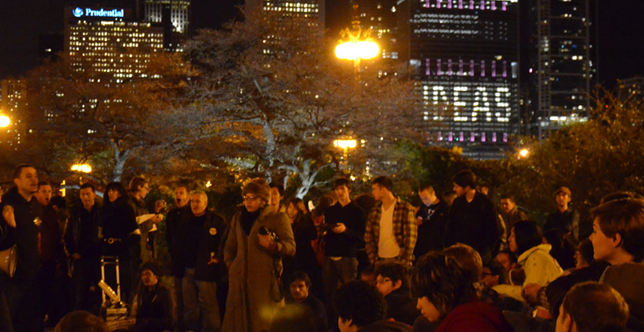What do we mean by ‘the economy’?
Some research I did during the Black Lives Matter protests pointed me towards Seeing White, which is Season 2 of the amazing Scene On Radio. I’ve been catching up with other series of the podcast since then, and the third series about toxic masculinity is also excellent.
However, it’s an episode of the most recent season which I want to focus on here. Season 4 concentrates on the origins of American democracy and, towards the end of March 2020, the hosts recorded a special bonus episode.
I listened to the episode this morning and it put into words something I’ve really been feeling about references to ‘the economy’. Thankfully, Scene On Radio provides audio transcripts.
Here’s the main host, John Biewen, talking to his co-host and collaborator, the academic and activist Chenjerai Kumanyika. They’re discussing the tension between the economy and democracy.
John Biewen: So in those cases from our series, and in others that we’ve looked at, it seems clear that building a healthy economy, as the ownership class understands that, is usually not the same as achieving wellbeing for most people. And here we are today, this argument still seems to be very much with us.
Chenjerai Kumanyika: So, you look at what we’re dealing with right now with this crisis, there’s a lot of evidence suggesting that this thing of prioritizing profit has a lot to do with why our disaster preparedness is so far from what we need right now. Most of y’all have probably heard that Trump dismantled a pandemic preparedness team inside his administration that had been created during the Obama administration. But what you really have to look at is how he explains hisreasoning for this. In a press conference where he was describing why he cut thepandemic team and other things, he said, “I’m a business person….”
BONUS EPISODE: Pandemic America, Scene On Radio, Season 4: The Land That Never Has Been Yet
They play a clip from Trump where he says he doesn’t want people ‘standing around’ being unproductive. But of course that only makes sense if you think countries should be run like businesses.
Chenjerai Kumanyika: And so there’s all these ideas circulating that everythingin the world should operate like a business and that somehow businesspeople are the best equipped to do everything. But in this case what you see is that business instinct was incredibly shortsighted. When we’ve actually known about these kinds of flus for decades, and people have been warning about just this kind of global pandemic — including Dr. Anthony Fauci, who’s playing such a prominent role right now. He’s the head of the National Institute of Allergy and Infectious Diseases and you’ve probably seen him talking about this. He’s been warning about flu pandemics at least since the 1990s. But with that government pandemic unit cut from the budget, the decision of whether or not to develop and mass-produce vaccines and tests was an economic decision left in the hands of people figuring out, like, are we gonna profit from this?
BONUS EPISODE: Pandemic America, Scene On Radio, Season 4: The Land That Never Has Been Yet
So there we have it. By ‘the economy’, what politicians and others mean is ‘profits for wealthy people’. This is why, with a straight face, they will talk about the ‘balance’ to be struck between the economy and the number of deaths caused by the pandemic.
Put like that, as profits for wealthy people, I don’t particularly care about getting the economy restarted. I care about human lives. Trickle-down economics has, after all, been debunked as bogus.
This post is Day 42 of my #100DaysToOffload challenge. Want to get involved? Find out more at 100daystooffload.com

